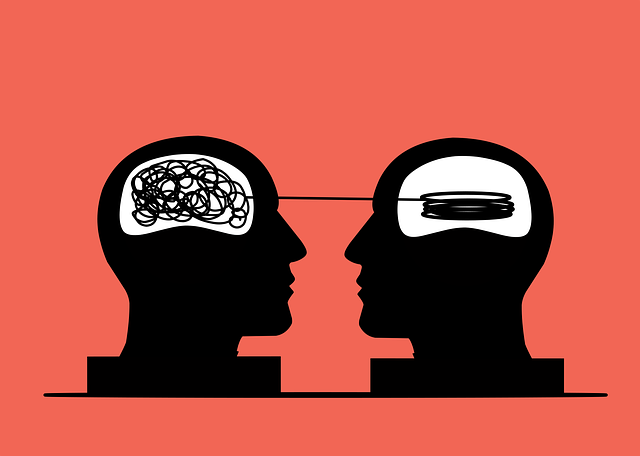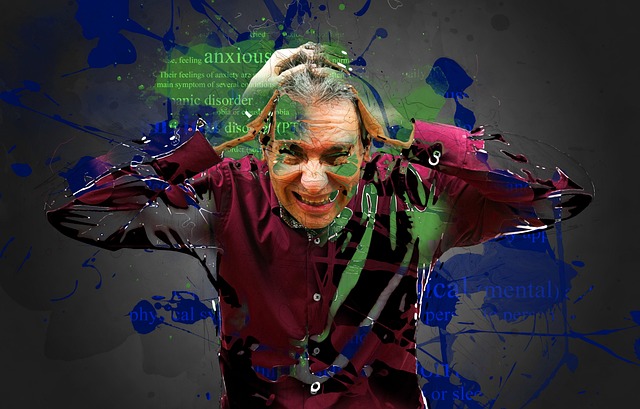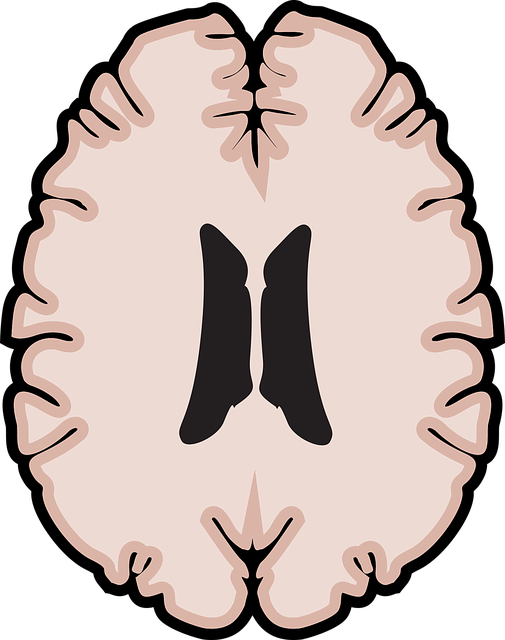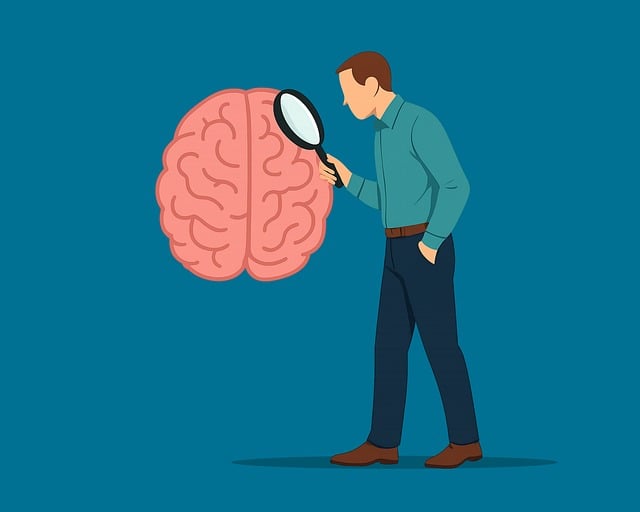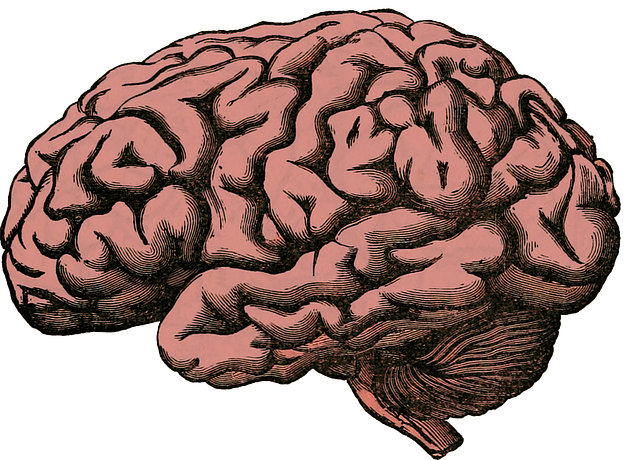Louisville Anxiety Therapy offers a holistic, personalized approach to mood regulation and anxiety management. By addressing interconnected thoughts, feelings, and behaviors, they help clients achieve emotional balance despite life's disruptions. Their integrated strategies include mindfulness, cognitive reframing, risk management planning, and crisis intervention. Through evidence-based techniques like CBT, social skills training, and lifestyle interventions focusing on nutrition and exercise, Louisville Anxiety Therapy empowers individuals to regain control, reduce anxiety, and enhance overall well-being.
Mood regulation is a vital aspect of emotional well-being, and mastering it can significantly enhance our quality of life. This comprehensive guide explores various strategies to achieve emotional balance, from understanding the complexities of mood dynamics to practical interventions. We delve into innovative approaches like Louisville Anxiety Therapy, which offers holistic solutions for stress and anxiety management. Discover evidence-based techniques such as cognitive behavioral therapy, mindfulness practices, and lifestyle changes, all designed to cultivate a stable and positive emotional state.
- Understanding Mood Regulation: Unraveling the Complexities of Emotional Balance
- Louisville Anxiety Therapy: A Comprehensive Approach to Managing Stress and Anxiety
- Cognitive Behavioral Techniques: Shaping Positive Thought Patterns for Better Moods
- Mindfulness and Meditation Practices: Cultivating Present-Moment Awareness for Calmness
- Lifestyle Interventions: From Nutrition to Exercise, Nurturing a Stable Emotional State
Understanding Mood Regulation: Unraveling the Complexities of Emotional Balance

Understanding Mood Regulation involves recognizing the intricate dance between our thoughts, feelings, and behaviors. Our emotional balance is a delicate equilibrium that can be disrupted by various factors, from stressful life events to chronic conditions like Louisville Anxiety Therapy.
Emotional volatility is not uncommon; it’s a natural part of the human experience. However, when mood swings become frequent or intense, they can significantly impact daily functioning. This is where effective mood regulation strategies come into play. By employing techniques such as mindfulness practices, cognitive reframing, and healthy coping mechanisms, individuals can learn to navigate their emotional landscape more effectively. For mental health professionals, integrating Risk Management Planning, Crisis Intervention Guidance, and even producing a Mental Wellness Podcast Series can provide valuable tools for supporting clients in achieving better mood regulation and overall well-being.
Louisville Anxiety Therapy: A Comprehensive Approach to Managing Stress and Anxiety

Louisville Anxiety Therapy offers a comprehensive approach to managing stress and anxiety, focusing on holistic treatment methods that cater to each individual’s unique needs. This therapy incorporates Mind Over Matter principles, helping clients harness their mental power to overcome anxious thoughts and behaviors. By fostering coping skills development, individuals learn effective strategies to navigate life’s challenges and reduce the impact of stress.
In addition to these core practices, Trauma Support Services are also provided to help those who have experienced traumatic events. This specialized care aims to process and resolve past traumas, which can be a significant contributor to anxiety disorders. Through a nurturing environment and evidence-based techniques, Louisville Anxiety Therapy empowers individuals to regain control of their lives and cultivate lasting resilience.
Cognitive Behavioral Techniques: Shaping Positive Thought Patterns for Better Moods

Cognitive Behavioral Techniques (CBT) are a powerful set of tools for regulating moods and managing anxiety. This therapy focuses on identifying and challenging negative or distorted thought patterns that can contribute to low mood and anxiety disorders, such as those often seen in Louisville Anxiety Therapy clinics. By understanding how our thoughts influence our emotions, CBT empowers individuals to consciously shift their thinking towards more positive and realistic perspectives.
Through various exercises, clients learn to recognize unhelpful cognitive distortions like all-or-nothing thinking or catastrophizing. They are then guided to replace these with balanced thoughts that align with evidence, a process known as cognitive restructuring. This technique, rooted in Mind Over Matter principles, encourages individuals to actively participate in their mental health recovery. Additionally, Louisville Anxiety Therapy professionals might incorporate Social Skills Training within Mental Health Education Programs Design to help clients navigate interpersonal interactions with improved confidence and reduced anxiety.
Mindfulness and Meditation Practices: Cultivating Present-Moment Awareness for Calmness

Mindfulness and meditation practices have emerged as powerful tools for Louisville anxiety therapy, offering individuals a way to cultivate present-moment awareness and find calm amidst life’s challenges. By focusing on the breath, bodily sensations, or specific thoughts and emotions, mindfulness meditation encourages acceptance and non-judgmental observation of internal experiences. This practice helps individuals develop emotional regulation skills, enabling them to respond rather than react to stressful situations.
Regular mindfulness exercises not only promote relaxation but also foster coping skills development. Through Mental Health Education Programs Design, individuals can learn to recognize triggers and patterns in their thoughts and behaviors, allowing for proactive management of anxiety and stress. This proactive approach equips individuals with the tools to navigate life’s complexities with greater resilience and a heightened sense of self-awareness.
Lifestyle Interventions: From Nutrition to Exercise, Nurturing a Stable Emotional State

In Louisville Anxiety Therapy, lifestyle interventions play a pivotal role in nurturing a stable emotional state. Nutrition and exercise are two key components that significantly influence mental well-being. A balanced diet, rich in essential nutrients, can help regulate mood by supporting brain function and reducing inflammation. Regular physical activity not only improves cardiovascular health but also releases endorphins, which act as natural mood lifters. These lifestyle changes work synergistically with therapy to strengthen inner strength and develop resilience against mental health challenges.
Beyond these, trauma support services and mental illness stigma reduction efforts contribute to a holistic approach in managing anxiety and related conditions. By addressing underlying emotional wounds and fostering an environment of understanding, individuals can better cope with stress and maintain emotional stability. Louisville Anxiety Therapy integrates these strategies into comprehensive care plans, empowering clients to take control of their emotional well-being and live more fulfilling lives.
In conclusion, maintaining emotional balance is a multifaceted process. From understanding the complexities of mood regulation to adopting evidence-based strategies like Louisville Anxiety Therapy, cognitive behavioral techniques, mindfulness, and lifestyle interventions, individuals can effectively manage their moods and overall well-being. By integrating these approaches into daily life, people can cultivate resilience, enhance mental clarity, and foster a deeper sense of calm, ultimately leading to a more fulfilling and balanced life.

